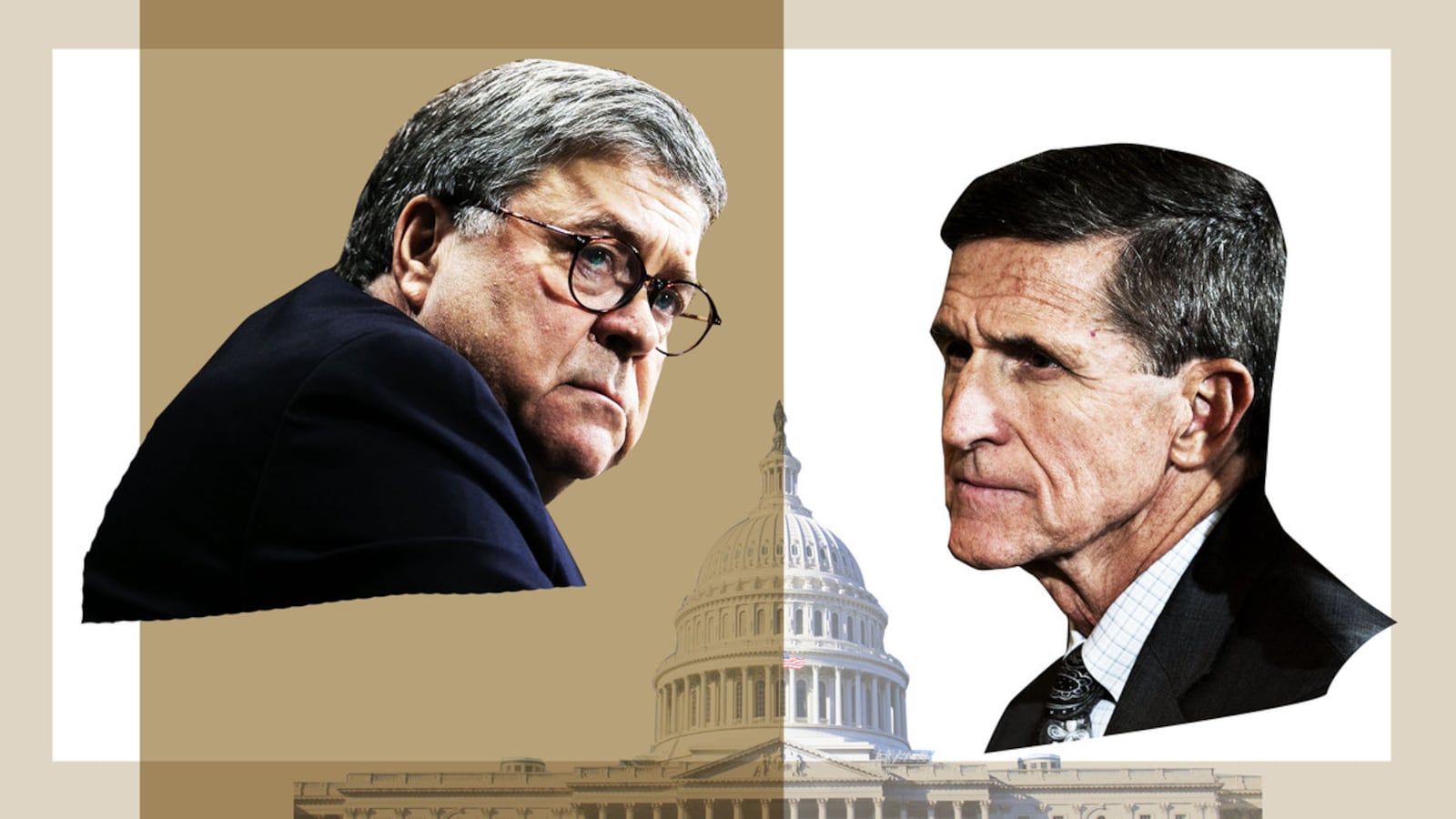Make no mistake about it: Attorney General William Barr is taking direct control of the cases closest to Donald Trump. He is doing so under the pretense of ordering “reviews” of Michael Flynn’s case and others that are officially being handled by the United States Attorney’s Office for the District of Columbia. I served in that office as a federal prosecutor for over 10 years before becoming counsel to then Attorney General Janet Reno. In my time as a federal prosecutor, I never witnessed anything remotely like Barr’s naked grab for power now.
The United States Attorney’s Offices are located within each of the 94 judicial districts in the United States, serving as each district’s “local” federal prosecutor. Although they are part of the Justice Department, they operate with a good deal of independence and, in my experience, this independence was greatly respected by the higher-ups at the Justice Department, in part because line prosecutors in U.S. Attorney offices handled a far greater volume of cases than do the sections at Main Justice. When I was a federal prosecutor in D.C. I do not remember a single instance of Main Justice, as it’s called, taking control over our cases.
But there is an even more important reason than practicality why Main Justice has respected the independence of line prosecutors. That reason is the recognition that the fair dispensation of justice requires them to be as independent as possible from political influence. This is what Barr has upended.
Political appointees such as the attorney general and United States Attorneys come and go but the career prosecutors stay, maintaining institutional wisdom and a buttress against political interference in the criminal justice system. As a young prosecutor, I learned to talk to veterans who had served through many different administrations. As a supervisor in the D.C. U.S. Attorney’s Office, I witnessed first-hand how incoming United States Attorneys always listened first to the career professionals in the office.
When I worked for Reno, I saw the care she devoted to avoiding even the perception of political influence in prosecutorial decisions. Not only did the AG herself avoid discussing particular criminal cases with politicians but those who worked for her in the leadership offices treaded cautiously even when communicating with U.S. Attorney offices and sections at Main Justice. We understood that even an inquiry from the attorney general’s office or the deputy attorney general’s office could be perceived as pressure or interference. When Reno asked for an update on a case, I always took care to be clear I was only inquiring as to the status of the case and always did it through supervisors. Never did I directly inquire of a line prosecutor.
Barr, however, is grossly violating all of this. His public opining about his disagreement over the sentencing recommendation made by the trial team in Roger Stone inserted the attorney general directly into that case —a case that involved a close associate of the president who had appointed Barr. His use of an outside prosecutor to review the Michael Flynn case is a poorly masked effort to directly interfere with a case that has already resulted in a conviction by guilty plea. The New York Times has reported that Barr also has installed lawyers from the deputy attorney general’s office within the D.C. U.S. Attorney’s Office to question and review decisions being made by the line prosecutors in certain politically sensitive cases. One can only assume that AG Barr gets to determine which cases should be considered politically sensitive.
The move made plain that Barr’s interview asserting his independence from Trump and criticizing the president’s public complaints about prosecutors and judges was strictly for show. At best,that was his attempt to reassure career prosecutors and regain some control after the entire Roger Stone trial team resigned from the case following the attorney general’s interference with their sentencing recommendation to the court. At worst, it was Barr falsely claiming that he was actually acting independently.
There have been other attorney generals who abused their power. Harry Daugherty was caught up in the Harding administration’s Teapot Dome scandal and forced to resign. John Mitchell was convicted of perjury committed in the course of Watergate. But these may be one-off acts of corruption. They pale in comparison to the pattern of interference engaged in by Barr. The damage he has done and continues to do to the Department of Justice may never be fully repaired.






